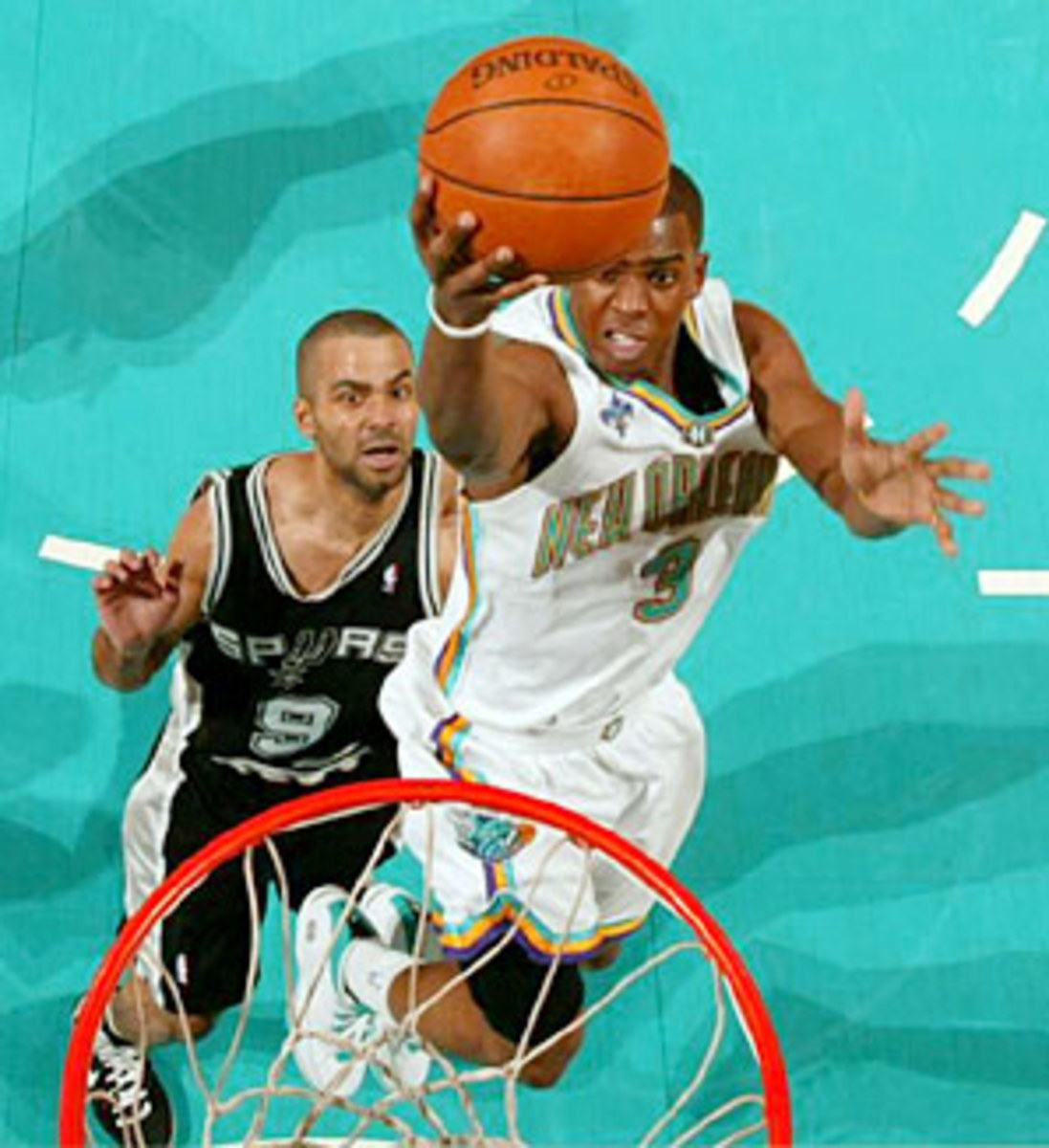It's time for the Spurs to make their stand against the Hornets
For starters, San Antonio, which is in the playoffs for the 12th consecutive year, trails a series 2-0 for the first time since 2001, when it was swept out of the conference finals by the Lakers.
On top of that, the Spurs' defense -- a staple during the team's run of three championships in the previous five seasons -- is searching for answers as the series shifts to San Antonio.
Yes, the Spurs committed too many turnovers (28) and shot poorly (41.7 percent) in two lopsided losses at New Orleans, and Tony Parker and Manu Ginobili struggled to break down the Hornets' defense. But the biggest factor in avoiding a third defeat -- and facing a deficit from which no NBA team has rallied -- could be slowing a Hornets' offense that is averaging 101.5 points on 49.1 percent shooting in the series.
"We have to find a way to get stops and play off of that,'' Tim Duncan told reporters. "That's how our team always works -- try to get some stops and try to push it back at them -- and we seem to, every time we do get a stop, they're on the offensive glass and making plays. We've got to find a way to counter that a little bit better.''
Spurs coach Gregg Popovich is not going to tell anyone his game plan. He won't even hint at it. But somewhere in an office at the Spurs' practice facility, Popovich was feverishly devising a couple of strategies after back-to-back third-quarter collapses at New Orleans -- starting with an approach to dealing with point guard Chris Paul.
By now, everyone has concluded that Paul cannot be stopped. The MVP runnerup has been downright surgical in the postseason, probing the paint, finding open teammates and even hitting his jump shot on a scarily consistent basis. His ability to wait until the last possible second for a play to develop before setting up a teammate is killing the Spurs, against whom he is averaging 23.5 points (on 50 percent shooting) and 12.5 assists. Those are Magic Johnson numbers. No wonder Paul said of the Hornets' success, "These are some of the best moments of my life."
Perhaps the Spurs' strategy against Paul will be one they have used when facing Steve Nash: Give him whatever he wants. At various points during their playoff battles with the Suns, the Spurs attempted to turn Nash into a scorer, daring him to beat them with his jump shot. Why try this against Paul? Because Paul's scoring 30 points isn't what will beat the Spurs. The 12 to 15 assists he is capable of dishing out are the real dagger.
Paul's dominance has helped expose another issue for the Spurs: contesting shots. Make no mistake, the Hornets are an excellent shooting team. They were second in the league (48.7 percent) during the regular season. All-Star David West is one of the league's top shooters among power forwards, and Peja Stojakovic's track record speaks for itself. But shooting becomes infinitely easier when no one is within five feet of you.
Correcting that problem is easy: Stay at home on the shooters. Yes, by staying at home the Spurs risk seeing Paul get to the rim repeatedly, but thus far every time a defender has helped on Paul, he has found an open shooter. Moreover, when the Spurs were scrambling to help, that often left Tyson Chandler battling in the lane with a much small defender, which led to easy put-backs. The Hornets had 21 second-chance points in Game 1.
"We're in the groove right now," Chandler said. "I don't know if there's been a time this year when we've been really clicking like we are now."
The defending champions need to disrupt that rhythm -- and fast.





